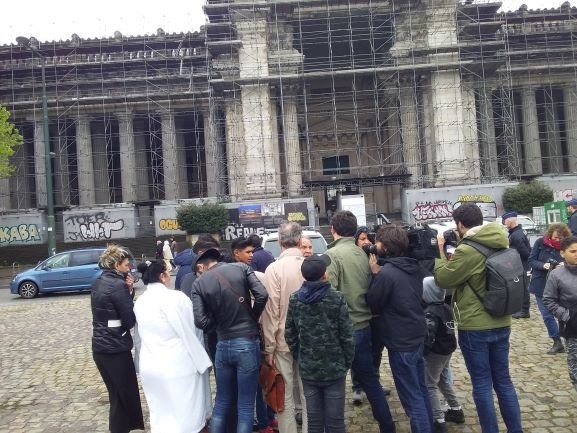The European Commission announced on Thursday the 14 winners of the fourth EU award for Integration in the Western Balkans and Turkey.
Of the estimated 10-12 million Roma living in Europe, about 1 million live in the Western Balkans and 2.8 million in Turkey. The full integration and inclusion of Roma people is a key priority for the EU and starts with employment. Roma integration is one of the conditions enlargement partners have to fulfil to become an EU member state.
This year’s award recognised Extraordinary People Promoting Equality through Employment. The winners include a window-cleaning business in Albania, the Montenegro Red Cross and the Municipality of Konak in western Turkey. The award ceremony took place in the framework of the 5th EU Roma Week (27 – 30 September 2021).
Launched in 2014, the EU Award aims to highlight the importance of Roma integration in the EU Enlargement process and to show the EU's determination and commitment to improving the social inclusion of Roma people, the Commission explains. The Award is funded by the EU and implemented by Roma Active Albania.
Of the 67 applications submitted, 14 projects have been chosen for their outstanding contribution. Two prizes were awarded to each candidate country, mainly to organisations and municipalities in the region run by enthusiasts.The nominees often put themselves at risk by being role models and breaking established traditions.
The awards were given to successful initiatives in the field of employment, for example gender equality, vocational training, empowerment, and the funding to micro-businesses.
What is the importance of these awards?
“They are a source of hope for many Romani people on the ground, the recognition of individual and collective efforts of Romani activists making change happen for their Romani brothers and sisters,” replied MEP Romeo Franz (Greens/EFA), the first Romani (Sinti) person from Germany elected to the European Parliament. He has been involved in civil rights work for Roma people for more than 20 years.
“At the same time, it’s a proof that equal access to employment can be achieved when the affected people are involved from the beginning of the initiative and it is an example that could be transformed in structural changes by the public authorities at local level,” he added.
He is also co-chair of the Anti-Racism and Diversity Intergroup (ARDI) in the European Parliament, a cross political party grouping that exists to promote racial equality, counter racism, and educate about non-discrimination in the work of the Parliament
The parliament has called on the European Commission to propose a law on equality for Roma in the EU. How is it going?
“We are in the process of influencing he European Commission to draft the law, as this is their responsibility,” he told The Brussels Times. “In September 2020, a resolution that I have proposed for Romani Equality, Inclusion and Participation was adopted by a majority of 545 MEPs. Through this resolution, the Parliament was clearly asking the Commission to present a legislative text.”
“However, the Commission presented another strategic framework, which has only the status of a recommendation for the member states and isn’t binding law.”
“I always said and I keep saying it: Change can be achieved only by law. Through law, you can ensure adequate funding for the implementation of concrete solutions, you can have binding indicators to measure the progress, the success and binding monitoring mechanism to see how the money are spent. I’m continuing my work and this year I might ask for another report in the Parliament to make the law possible.”
The Commission refers to existing legislation such as the Racial Equality Directive and the Framework Decision on Combatting Racism and Xenophobia, both transposed by the EU member states, but seems not to exclude that there might be a need for new legislation.
The Racial Equality Directive already prohibits both direct and indirect discrimination based on ethnicity in a number of areas, including those covered by the EU Roma strategic framework (education, employment, health and housing).
Furthermore, according to the Commission, the EU Anti-Racism Action Plan adopted in September 2020, is providing a framework to address individual and structural racism in the EU, including antigypsyism, and aims to tackle racism and racial discrimination through both legislation and policy action.
In terms of legislation, the Commission says that it will report on the implementation of the Racial Equality Directive in 2021 and will present, by 2022, any legislation required to address shortcomings, including to strengthen the role and independence of equality bodies.
At her hearing in the Parliament in October 2019, Helena Dalli, the Commissioner for Equality, described equality as an infinite resource. “There is enough equality for everyone and we can sustain it. On the other hand, discrimination excludes, marginalises, and leads members of society to the brink. Discrimination is a wasteful practice. It robs members of society of their wellbeing, fulfilment and prosperity.”
M. Apelblat
The Brussels Times

